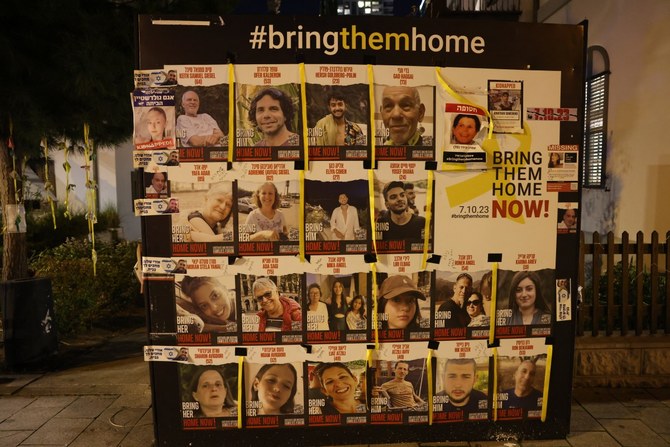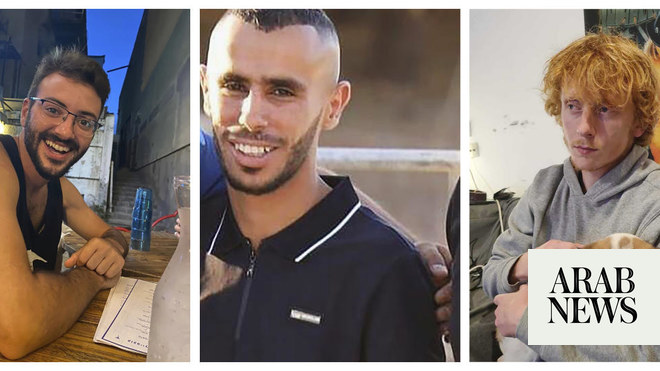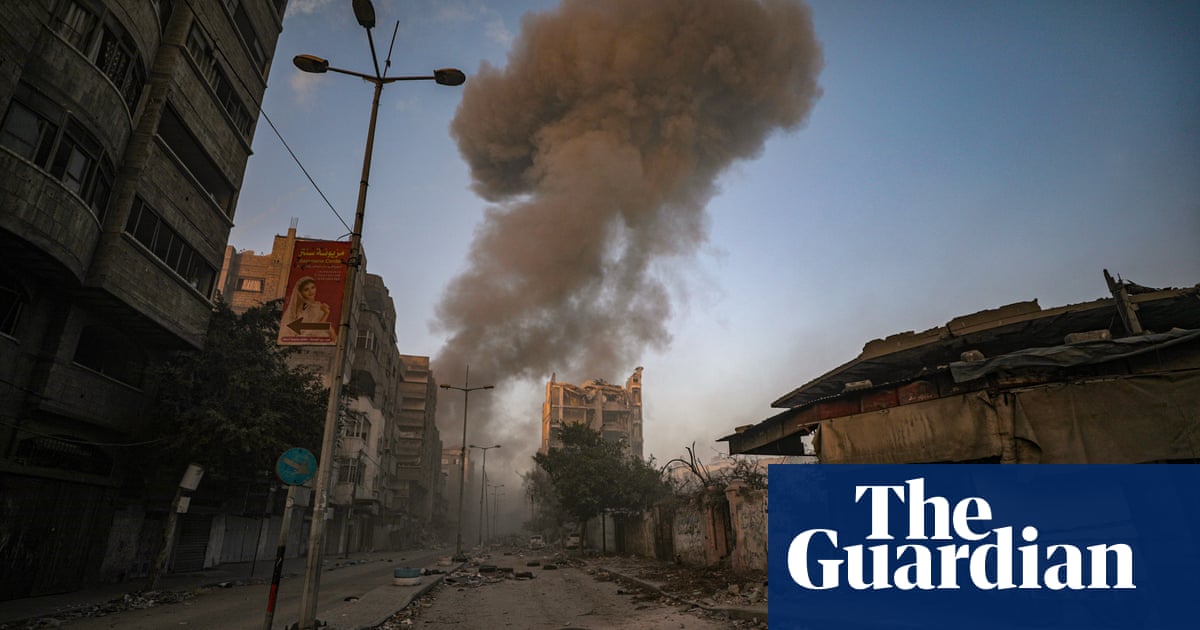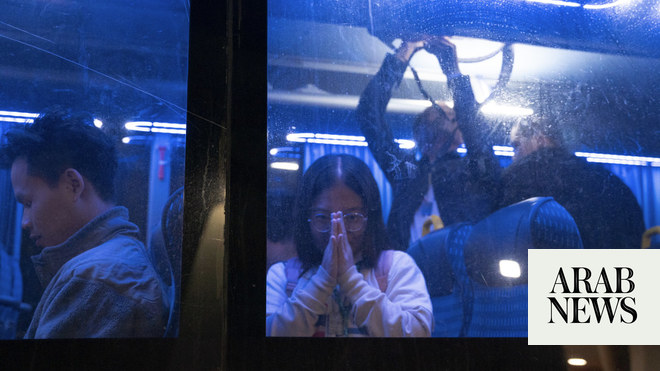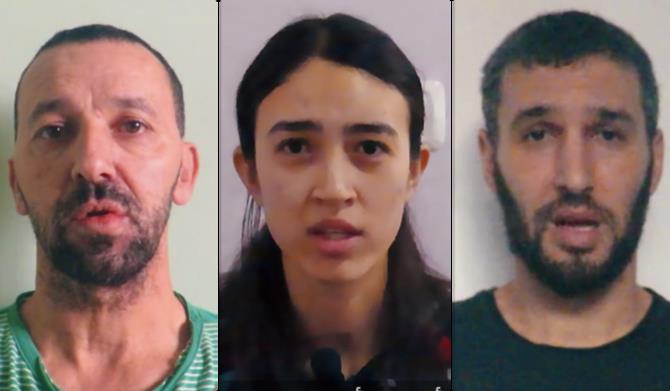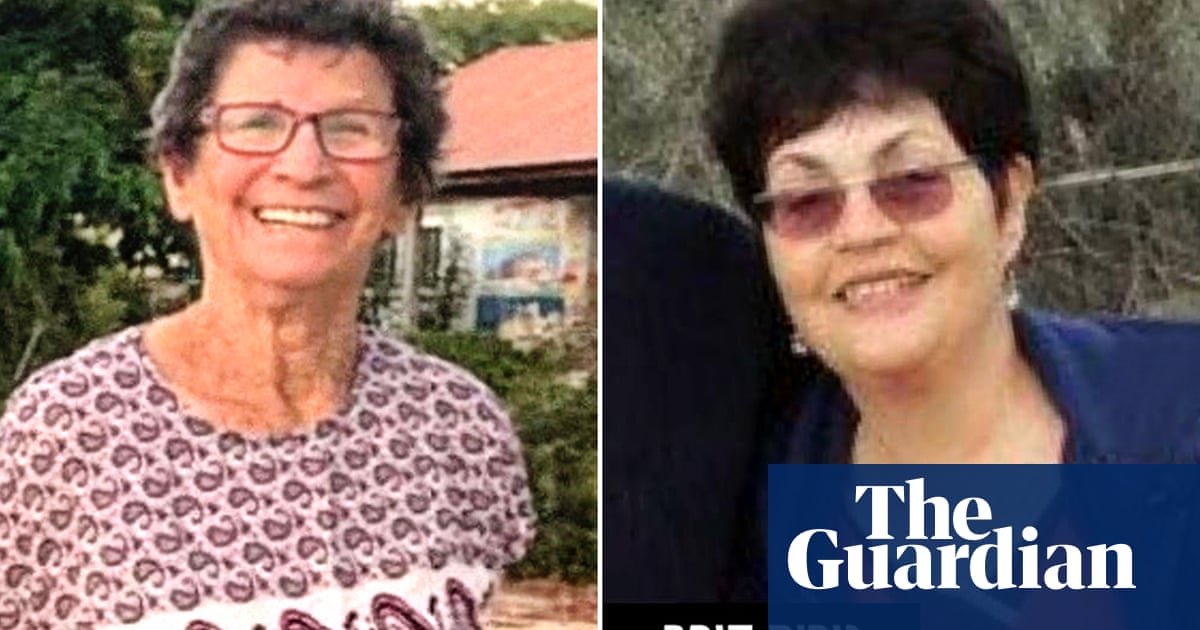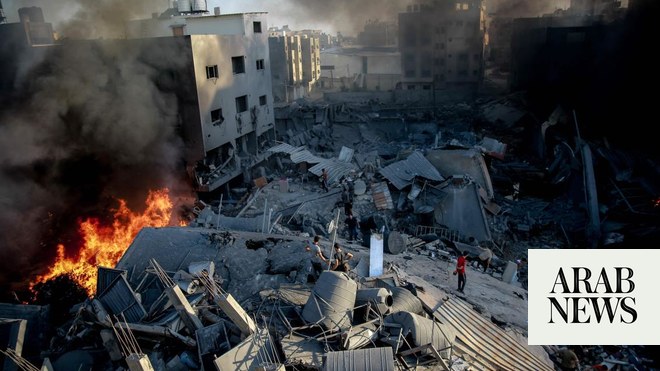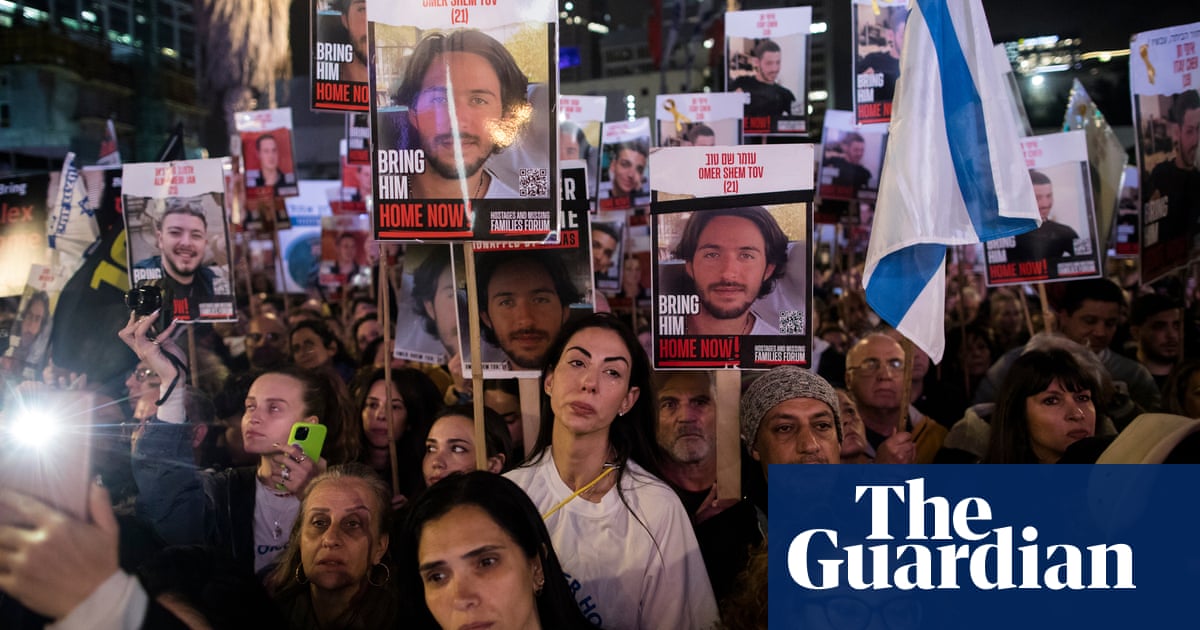
Hamas has released a video announcing the death of two Israeli hostages and claimed that they were killed by Israeli airstrikes.
The video showed a female hostage named in Israeli media as Noa Argamani, 26, speaking under duress, revealing that two men she was held captive with had been killed in captivity. It was not clear when or where the video was filmed and there was no independent confirmation of Hamas’s claims.
The three hostages were shown in a 37-second Hamas video released on Sunday in which the group urged the Israeli government to halt its aerial and ground offensive and bring about their release. The undated clip ended with the caption: “Tomorrow [Monday] we will inform you of their fate.”
In a statement released with the new video, Hamas’s armed wing, the Izz ad-Din al-Qassam brigades, said the two men, believed to be Yossi Sharabi, 53, and Itay Svirsky, 38, had been killed in “the Zionist army’s bombing”.
The three are among about 240 people taken hostage by Hamas during its attack from Gaza into southern Israel on 7 October. About half of the hostages were released during a short-lived November truce, but Israel says 132 are still held by the Islamist militant group and that 25 have died in captivity.
Israel’s defence minister, Yoav Gallant, accused Hamas of carrying out “psychological abuse”.
Gallant said on Monday that the intense military operation in southern Gaza was nearing its end, but that without keeping up pressure, Hamas would not agree to release any more hostages.
At the weekend, Netanyahu told Israelis that the war would continue until “total victory” with Hamas “eliminated” and the hostages freed. Analysts have increasingly questioned how these aims can be reconciled.
Relatives of the hostages organised events in Israel on Sunday – the 100th day of the remaining hostages’ captivity – to draw domestic and international attention to their plight. “We are calling on everyone, everywhere to put on pressure to make a deal happen. We need the people of Israel, the people of the world, to help us,” said Daniel Lifshitz, whose grandfather, Oded, 84, was abducted from his home on a kibbutz close to Gaza on 7 October.
More than 1,200 people were killed in the 7 October attacks in Israel, mostly civilians. Israel’s offensive has killed at least 24,100 people, mostly women and children, according to an updated toll from the Palestinian health ministry in Ramallah.
Negotiations on the fate of the hostages stalled after the release of 105 in exchange for 240 Palestinians held in Israel jails during a brief truce in November. Israel has said 25 are now believed to be dead.
Talks began again about three weeks ago, with Qatar as the principal mediators. Israeli officials also visited Cairo last week in an effort to restart discussions.
The Israeli cabinet is deeply divided between moderates pushing for a deal to release the hostages and rightwingers who believe the military effort to “crush” Hamas should take precedence. The moderates narrowly won debates before the November ceasefire, but Netanyahu has backed the hardliners since.
New details emerged in recent days of an agreement to allow medicine – such as vital prescription drugs – to reach the hostages, along with an increase in humanitarian aid into Gaza.
On Friday, Netanyahu’s office confirmed the deal, which should come into effect this week. Negotiators are discussing how to deliver the medications and aid with Israel and Hamas.
A diplomat briefed on the talks in Qatar said a visit by the families of hostages earlier this month had “fast-tracked” discussions on getting vital supplies to the captives, providing an initial if limited success after talks resumed earlier this month.
“Both [Hamas and Israel] have shown willingness to allow the delivery of the medicine,” the diplomat said. “Discussions are ongoing with both sides and with international NGOs … to allow the delivery of medications to Israeli hostages and Palestinian civilians in Gaza as soon as possible.”
Sources in touch with Hamas said the group was ready to allow the International Committee of the Red Cross (ICRC) to conduct a visit but only if there was a temporary ceasefire that would allow the captives to be moved from any strategically important locations.
Israeli officials have said they believe some of hostages in Gaza are being kept close to senior Hamas leaders in the territory to protect against Israeli airstrikes, and have so far refused to pause their offensive. Hamas has not directly commented on the claim.
A diplomat briefed on the talks in Doha said the overall focus of the negotiations remained a cessation of hostilities and more aid for Gaza in return for the release of hostages, initially female, elderly and sick people, they added.
In the absence of agreement on the most important questions, negotiators appear to be focusing on more minor issues to break a months-long deadlock.
Lifshitz, who met senior Qatari officials in Doha last week, said he had been told that “both sides are still far [apart] but it is possible to reach an agreement”.
“The Qataris asked Israel to be more creative, to try to move things forward for a deal, to understand there is a big price that needs to be paid. Any pause [in fighting] will definitely accelerate the negotiations,” he said.
During the renewed talks, there has been an increased focus on getting humanitarian assistance into Gaza, where most vital medical infrastructure has been devastated in the 100 days since fighting began. The provision of insulin, for example, to the territory has been under discussion since the beginning of the war.
The discussions also involved US and Egyptian officials. Cairo is thought to be proposing an ambitious series of ceasefires and releases that would lead to an end of the war. Hamas has previously said it would release all the hostages if Israel freed thousands of Palestinian prisoners from its jails.
Hamas has refused to discuss a demand by Israel for the release of some hostages in return for allowing some of the 1 million people in Gaza displaced by the ongoing offensive to return to their homes in the north of territory, a source close to the group said.
Israeli officials said on Friday that no such demand had been made and that they were collaborating with the UN to allow the future return of Palestinians to north Gaza.
The ICRC has long pushed for access to the hostages, as well as to Palestinians imprisoned by Israel. Rights groups have expressed alarm at recent detentions of thousands of Palestinians in the West Bank and Gaza and widespread reports of their mistreatment.
Relatives of hostages are urging the ICRC to call clearly for a ceasefire and access.
“We haven’t had any news about my grandfather since about 10 weeks ago and back then we don’t think he was getting any of the medicine he needs for his high blood pressure. And without the medicine I don’t think he can survive,” said Lifshitz.
The ICRC described the work being carried out to ensure the delivery of medications to the hostages as “extremely complicated and delicate”.




